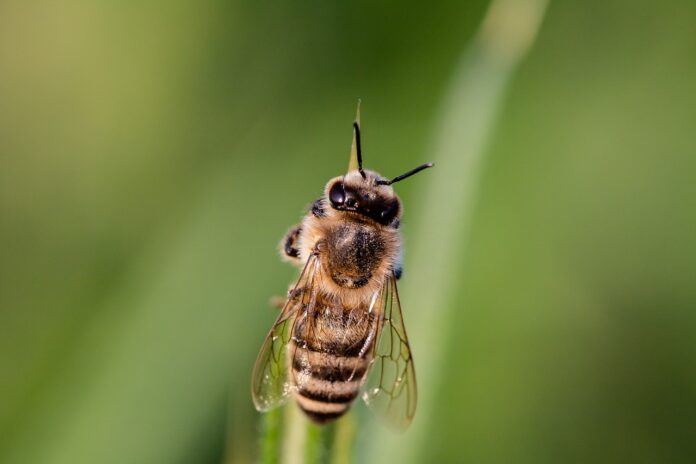UNIVERSITY PARK, Pa. — A team of Penn State researchers received a $3 million grant from the National Science Foundation to spearhead a new initiative to create novel monitoring systems for insect populations, many of which are experiencing dramatic changes across the globe due to changes in land use, pollution and climate change.
The project — called Interdisciplinary Studies in Entomology, Computer Science and Technology NETwork, or INSECT NET — will establish a graduate training program to empower students to develop solutions to the insect biodiversity crisis.
The program includes faculty from Penn State’s College of Agricultural Sciences, College of Engineering, College of Earth and Mineral Sciences, Huck Institutes of the Life Sciences and the Institute for Sustainable Agricultural, Food and Environmental Science.
Christina Grozinger, professor of entomology and principal investigator on the project, said these solutions may include cyber-physical systems, such as small robots with camera or acoustic sensors, which can autonomously monitor, map and predict changes in insect abundance and distributions across landscapes and over time.
According to Grozinger, insects are essential for human and ecosystem health. Some insects are pests that need to be managed, such as mosquitos, while others are beneficial and need to be conserved, such as bees. However, populations of some pest species are expanding while populations of beneficial species are declining.
“New technologies — such as autonomous, eco-sensitive robots with intelligent sensors that can navigate, observe and interact with fragile ecosystems — could help provide key insight into changes in insect biodiversity,” said Vijay Narayanan, professor of computer science and engineering and electrical engineering and a co-principal investigator on the project. He is also the associate dean for innovation in the College of Engineering. “This data could then be used by communities and policymakers to make key decisions to help mitigate pests while conserving beneficial species.”
Trainees in the program will have the opportunity to gain competencies in insect systematics, ecology, sensor design, energy efficient optimizations, continual learning and adaptation of AI systems, robotic systems, data integration, and data management, including designing visualization tools accessible to stakeholders.
(Information provided by Christina Grozinger, Penn State University.)











We need, “New technologies — such as autonomous, eco-sensitive robots w/ intelligent sensors that can navigate, observe & interact w/ fragile ecosystems — could provide key insight into changes in insect biodiversity,” said Vijay Narayanan, professor of computer science & engineering & electrical engineering. Vot yeltz would u expect someone in his fields to say? All we ‘really need,’ is to control ever expanding human population, so we don’t need to use “Persistent, Bio-accumulative Toxic agricultural chemicals to provide enough food for more billions of humanity than this finite planet earth was ever meant to provide for. And insects will occupy their space here as ‘they always did’ before we got too smart for our own good.
Why did you erase my submitted comment that I put in my time & effort to write? I’d appreciate you telling me why you made it disappear after I clicked on ‘Submit.’ That really smarts.
It was approved. We just have a comment policy and a moderator so it can take time. Most comments are approved within 24 hours.